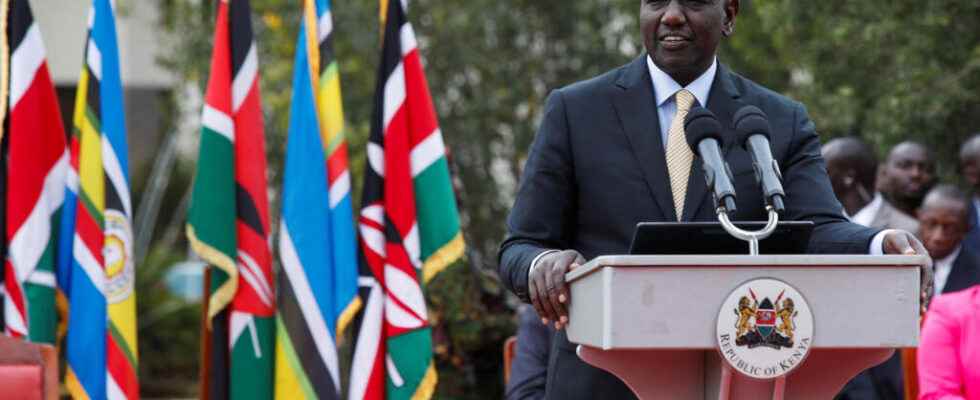Borrow less and hunt for tax evasion. This is Kenya’s plan for the next year. The Public Treasury published this week a first provisional version of the budget for the fiscal year 2023-2024. Stated objective: to encourage economic growth so that it reaches 6.1% against an estimate of 5.5% for the period which will end in June. And while Kenya is facing a difficult economic context due to inflation, consequences of, among others, the Covid-19 pandemic, the war in Ukraine and the drought that is plaguing the country.
With our correspondent in Nairobi, Albane Thirouard
William Ruto had announced it. This preliminary version of the budget for the fiscal year 2023-2024 confirms it: the objective is to slow down the increase in public debt which weighs heavily on Kenya’s budget. Indeed, rising to more than 70 billion dollars, this debt is expensive: more than half of the State’s revenues go to its reimbursement. Kenya will therefore certainly continue to borrow, but to a lesser extent.
However, the public expenditure budget should increase. It aims to support key sectors of the Kenyan economy as a priority, such as agriculture and SMEs.
To finance these expenses, the Treasury wishes to increase its income, in particular by fighting against tax evasion. One of the measures cited involves telephone operators, in particular the data generated by their mobile payment offers. William Ruto had already mentioned the potential of this device, widely used in Kenya, both to send money between individuals and to pay for goods or services. The idea for the government would be to collect data from these transactions to identify those who do not pay their taxes. A proposal that already raises questions, particularly around data protection.
This provisional version of the budget is open to public comments and must still be validated by Parliament.
